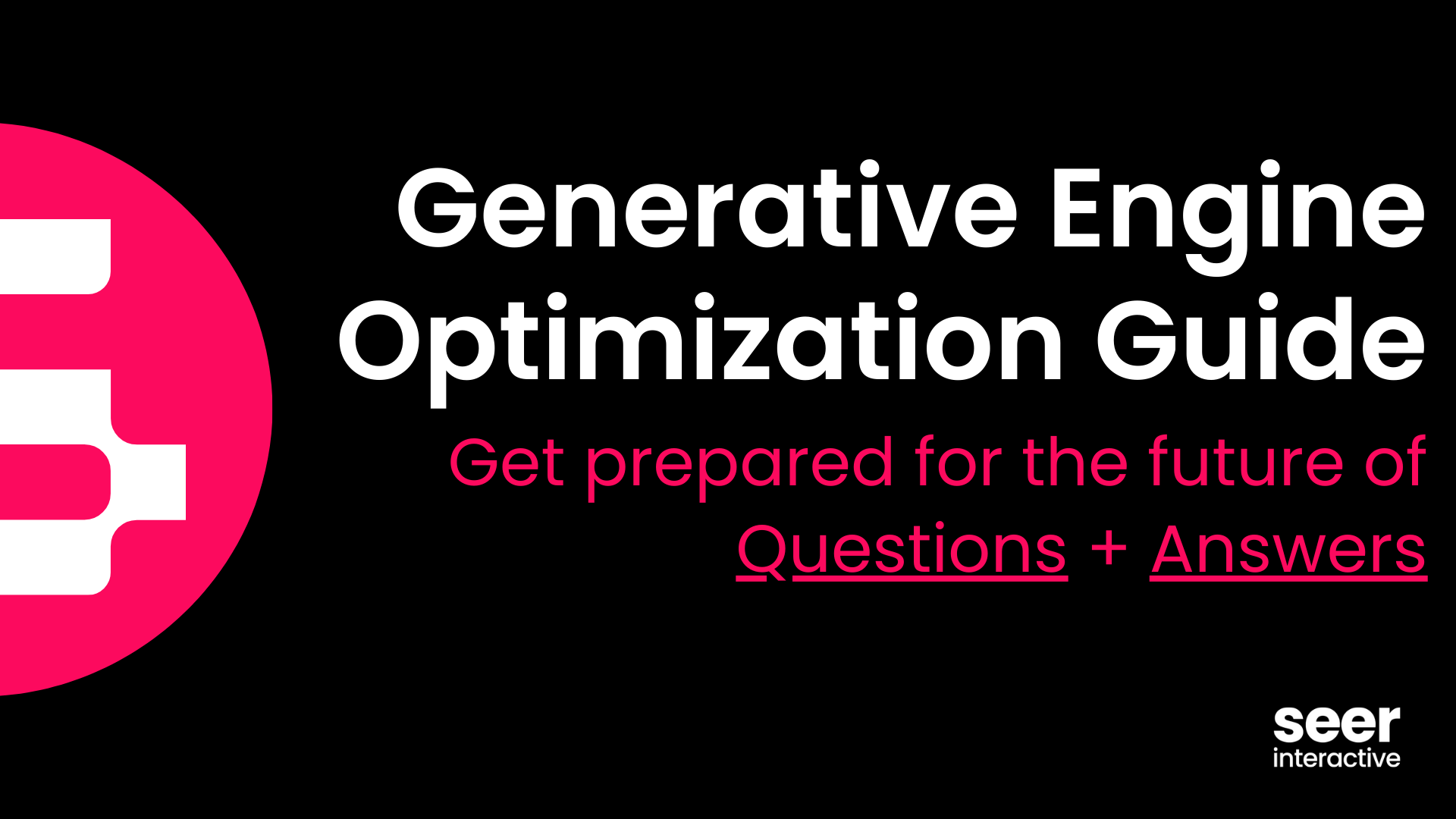Now more than ever, we see our clients challenged to do more with less
Digital Marketing teams who have proven effective in hitting performance targets aren’t being rewarded with more budget, they’re being challenged with less.
This has come up in dozens of renewal conversations with our clients at Seer.
Some of our most savvy clients have looked to be creative with how they’re working with procurement and positioning their budget requests to their C-Level. All of this has led several clients back to the same question:
Should SEO be a Capital Expenditure (CapEx) or an Operating Expense (OpEx)?
What’s the difference between CapEx and OpEx?
Operation Expenses (OpEx)
The vast majority of performance marketing budgets we’ve seen have been an Operating Expense for clients. Per Investopedia, an Operating Expense is defined as:
“An operating expense is an expense that a business incurs through its normal business operations. Often abbreviated as OpEx, operating expenses include things like: rent, equipment, inventory costs, marketing, payroll, insurance, step costs, and funds allocated for research and development.”
When our clients are challenged with budget cuts, often these cuts are happening for Operating Expenses as a whole.
[TIP] Operation Expense Examples:
- Rent
- Inventory Costs
- Marketing
- Payroll
- Insurance
- R&D
Capital Expenses (CapEx)
Per Investopedia, a Capital Expenditure is defined as:
“Capital expenditures (CapEx) are funds used by a company to acquire, upgrade, and maintain physical assets such as property, plants, buildings, technology, or equipment.”
[TIP] Capital Expense Examples:
- Property
- Plants
- Buildings
- Technology
- Equipment
SEO as a CapEx
If you’re like me, these definitions may have switched on a lightbulb for you.
Upgrading and maintaining an asset? Sounds like SEO to me.
Digging in further to CapEx definitions and considerations, more interesting tidbits emerged:
“… maintain existing property and growth”
We often hear clients in a bind asking for some level of “keep the lights on” engagement while budgets are being slashed to try to maintain the level of performance we’ve been able to drive.
“… if an item has a useful life of less than one year, it shouldn’t be considered CapEx”
Building and/or redesigning websites are multi-year investments, and SEO is both a growth lever and an insurance policy for those investments.
Can Digital Marketing be a CapEx?
One must first define what type of digital marketing you’re selling.
For example, you’d likely have a hard time trying to label your paid search budget as CapEx based on the highly transactional nature of those funds.
Digital Marketing Investment and Insurance Policy Activities
[TIP] Consider what actions you take as an investment or insurance policy for your digital presence. Those are CapEx opportunities.
Examples of Investment & Insurance Policy Activities:
- Analytics tagging and attribution as a one-time effort to measure the efficacy of the website and marketing campaigns
- Technical SEO Migration Support to ensure authority and value is transferred to a new domain / newly designed website.
- Evergreen Content Creation that will buoy the performance of your website for multiple years
- A “keep the lights on” SEO program that seeks to assess performance, flag unintentional issues (“Oops, we de-indexed our homepage”), and maintain a level of search visibility from the website.
Disadvantages of Moving SEO budget to CapEx
So far, all of this sounds great, right? A whole new budget to dip our toes into that isn't first on the chopping block come budget cuts - what’s not to like?
The biggest consideration is that these budgets will vary from company to company.
- You may find that CapEx budgets have been slashed even more rigorously that OpEx budgets.
- You may find you have no friendly faces to help you make a case for some of those CapEx funds.
- You may find there’s different success criteria for maintaining these budgets, and you lack confidence that you can measure or demonstrate that success criteria
Where do you go from here?
Despite these obstacles, we believe it’s worthwhile for any SEO budget holder to start a conversation today.
Here are some questions I’d seek to understand:
- Who owns the CapEx budget and how do they make decisions?
- How has the CapEx budget trended relative to the OpEx budget? Is it funded better or worse? More consistent or sporadic?
- Have digital assets been included in CapEx previously? For example, your IT team may already sit under CapEx.
- What elements of your SEO program could be easily defined as CapEx vs OpEx, and what would it mean for your overall resources if you could split between the two funds?
Explore these conversations now
If your budget for 2023-24 is already set, now can still be a great time to explore these conversations.
Talk to your procurement and finance team, build some connections and rapport, and see where you can get for your next budgeting season.
Who knows, you may even be able to shake free a bit of additional cash for this year.
Want more posts like this? Subscribe to the Seer Newsletter:



